The State of Israel and the United Kingdom have enjoyed a fruitful diplomatic relationship.
The below illustrates information regarding important events, state visits and cooperation agreement signings between our two countries
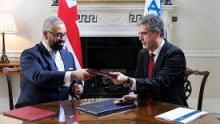
The UK and Israel signed the 2030 roadmap, an ambitious agreement to ensure the bilateral partnership remains forward-looking and continues to innovate to address shared challenges for mutual benefit. Using a thematic approach, the roadmap provided commitments for deepening UK-Israel cooperation. It covered the breadth of the deep relationship, including trade, cyber, science and tech, research and development, security, health, climate and gender.
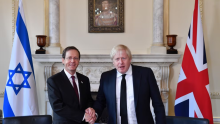
Following the UK’s departure from the European Union, Israel and UK signed their first free trade agreement, which came into force on 1 January 2021 and replaced the Israel-EU free trade agreement. The UK and Israel are in negotiations to upgrade and expand the existing FTA.

HRH The Prince of Wales travelled to Israel for the first official visit of a member of the British Royal Family. Princes Philip (1994) and Edward (2007) made private visits, as did King Charles III (in his capacity as Prince in 1995 and 2016).

Britain became one of the first countries to formally adopt the new definition of anti-Semitism, published by the International Holocaust Remembrance Alliance (IHRA).
The definition reads: “Anti-Semitism is a certain perception of Jews, which may be expressed as hatred toward Jews.
Rhetorical and physical manifestations of anti-Semitism are directed toward Jewish or non-Jewish individuals and/or their property, toward Jewish community institutions and religious facilities.”
The UK assumed the IHRA Presidency on 1st March 2024 for one year.

The British Embassy in Israel launched the UK-Israel Tech Hub, a non-for-profit venture to drive economic growth by helping British companies partner with cutting-edge technology from Israel.
The Hub – the first of its kind – has been instrumental in increasing and strengthening bilateral economic ties, with over 175 innovated partnerships facilitated worth more than £85m and with no fewer than 26 companies trading on the London Stock Exchange.

Gordon Brown became the first British Prime Minister to address Israel's Parliament (the Knesset) in Jerusalem, delivering a passionate speech to the gathered members.

Her Majesty Queen Elizabeth II received President Ezer Weizman to London.
The meeting marked the first State Visit of an Israeli President to the UK.
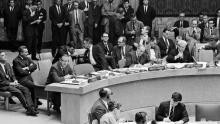
Lord Caradon, Britain’s representative to the UN, drafted Resolution 242, which was adopted after the Six-Day War and became the central document of the Middle East diplomatic effort.
The resolution, a total of just 291 words, aims to establish ‘a just and lasting peace in the Middle East’ between Israel and its neighbours.
Israel accepted the resolution and recognises it as the basis for all peace negotiations for an Arab-Israeli peace settlement.
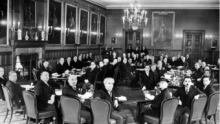
Israel opened diplomatic relations with the UK after the latter’s formal recognition of the State of Israel in April, moving staff to the former home of novelist and illustrator William Makepeace Thackeray. It officially became Israel's embassy in 1952 and has remained so ever since.
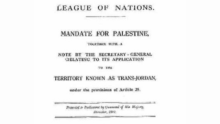
The League of Nations (predecessor to the UN) met in St. James Palace, London, legally confirmed Britain as the Mandatory power for Palestine and stated that “the Mandatory shall be responsible for placing the country under such political, administrative and economic conditions as will secure the establishment of the Jewish national home”.
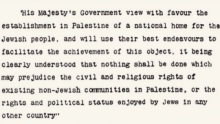
The Balfour Declaration enshrined the British Government’s support for a Jewish national home. Originally taking the form of a letter from British Foreign Secretary Lord Balfour to honorary president of the Zionist Federation Lord Rothschild, the declaration played an important role in Britain’s support for, and the creation of, the State of Israel.
